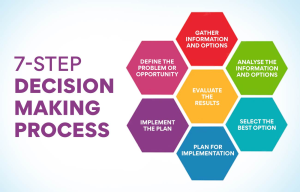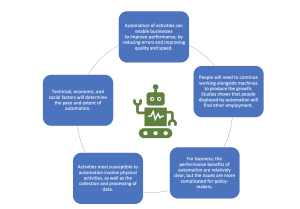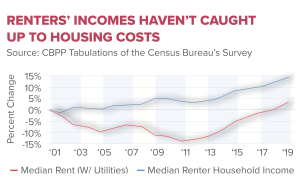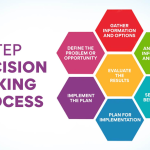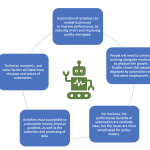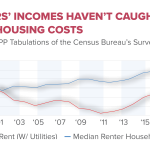Business ethics refers to the moral principles that guide the actions and decisions of individuals and organizations in the corporate world. In an environment where ethical decision-making is crucial, concepts such as corporate accountability and executive ethics have become more relevant than ever. As noted by business ethicist Joseph Badaracco, analyzing complex ethical dilemmas requires a detailed understanding of the relationships between stakeholders and the implications of business decision strategies. With high-profile cases highlighting the consequences of unethical behavior, the need for a structured approach to navigate these challenges is paramount. Emphasizing the importance of reflection and ethical reasoning helps leaders make informed decisions that align with both legal standards and moral expectations.
In the realm of corporate governance, principles concerning integrity and responsibility have increasingly taken center stage. Often referred to as ethical business practices, these guidelines emphasize the importance of transparent decision-making and accountability among business leaders. With the dynamic landscape of modern business, characterized by rapid technological advancements and complex stakeholder relations, leaders are called upon to exercise thoughtful judgment in ambiguous situations. This evolving discourse not only enriches discussions about corporate ethics but also enhances understanding of how decisions are made in uncertain environments. As organizations strive to maintain credibility and trust, fostering an ethical culture has become essential for sustainable success.
The Shifting Landscape of Business Ethics
Over the past thirty years, the concept of business ethics has evolved significantly, moving from a framework dominated by rigid philosophical theories to a more nuanced understanding that takes into account the complexities of modern commerce. Traditionally, business ethics involved applying moral philosophy to specific dilemmas, teaching students to navigate moral theories such as utilitarianism and deontology. However, today’s business environment demands a bottom-up approach where executives and leaders analyze real-world situations, understanding that ethical considerations are influenced by a myriad of factors, including corporate accountability and the intertwined nature of global markets.
Joseph Badaracco, a prominent figure in the study of business ethics, emphasizes that the ethical challenges faced by today’s business leaders are much more complex than in previous decades. This complexity arises from increasing international operations, rapid technological advancements, and heightened scrutiny from stakeholders. Leaders must now synthesize various perspectives and consider legal responsibilities in a way that resonates with the ideals of ethical decision making. Engaging with these intricate relationships requires a deep reflection on the implications of their decisions on not just shareholders but society at large.
Strategies for Effective Ethical Decision Making
When it comes to making ethical decisions, executives often encounter gray areas that require more than just adherence to rules. Badaracco advocates for an approach that relies on careful analysis and dialogue, urging leaders to cultivate environments where diverse opinions can be shared and examined. By engaging in honest discussions with colleagues, leaders can mitigate cognitive biases that often cloud judgment. This collaborative effort fosters a sense of accountability and shared responsibility, which is crucial in navigating the moral landscapes of business decisions.
Additionally, reflecting on personal values and responsibilities is vital in the decision-making process. Leaders are encouraged to ask themselves profound questions such as what truly matters in a situation, what are their central responsibilities, and what solutions will work best in the context of their organization. By grounding their decisions in these reflective practices, executives can develop a moral compass that not only guides them through ethical uncertainties but also bolsters their credibility within their organizations.
Understanding Corporate Accountability and Its Impact
Corporate accountability signifies a company’s obligation to act responsibly and transparently in all its dealings, particularly in the face of ethical dilemmas. Today, businesses are no longer standalone entities; they exist within complex networks of relationships with government regulators, interest groups, and various stakeholders. This interconnectedness compels organizations to adopt strategies that prioritize ethical considerations alongside profitability. With increasing public scrutiny and demand for socially responsible practices, the stakes for executives are higher than ever.
As exemplified through the failures of high-profile executives like Sam Bankman-Fried and Elizabeth Holmes, a lack of adherence to corporate accountability can lead to severe repercussions. Companies that sidestep ethical responsibilities not only harm their reputations but also risk legal ramifications. Therefore, fostering an organizational culture that prioritizes ethical decision making and corporate accountability is essential for long-term sustainability and success in the modern business environment.
The Role of Executive Ethics in Leadership
Executive ethics refers to the moral principles leaders uphold while making decisions that affect their organizations and stakeholders. In contemporary business, leaders are expected to navigate a myriad of ethical considerations, especially as they face increasing pressure from society to act ethically. The ethical landscape today is rife with complexities, necessitating that executives are not only aware of the potential consequences of their decisions but are also committed to upholding ethical standards in every aspect of their operations.
Badaracco’s insights indicate that the effectiveness of executive ethics hinges on the ability to harmonize ethical and practical considerations. Leaders must approach issues not merely as black and white but rather as challenging scenarios that require nuanced understanding and judgment. Consequently, the commitment to ethical practices is not just about legal compliance; it is about creating a culture where ethical decision making becomes ingrained in the organizational fabric.
Navigating Gray Areas in Business Decisions
Gray areas in business decision-making pose some of the most significant challenges for leaders seeking to maintain ethical standards. Unlike situations with clear right and wrong answers, gray areas can lead to conflicts where personal, organizational, and societal responsibilities intersect. In these instances, leaders must exercise their judgment, weighing the implications of potential decisions against ethical principles and stakeholder expectations. The subjective nature of these gray areas makes it even more critical for leaders to cultivate a robust decision-making framework.
To effectively handle these gray issues, leaders can benefit from engaging with colleagues and interdisciplinary teams that provide diverse perspectives. This collaborative approach not only helps to minimize biases but also encourages a deeper exploration of the ethical dimensions involved. Ultimately, the ability to navigate gray areas reflects an executive’s commitment to responsibility and integrity, allowing them to uphold high ethical standards even in ambiguous situations.
Reflections Leading to Responsible Decisions
The process of reflection is a vital component of ethical decision-making. Many successful executives incorporate reflective practices into their routines, utilizing moments of quiet contemplation or discussions with trusted peers to gain clarity on complex decisions. By reflecting on their values and the implications of their choices, leaders are better equipped to make responsible decisions that align with ethical standards and corporate objectives. This practice of reflection serves as a mental filter through which possible decisions are examined for both ethical soundness and practical effectiveness.
Incorporating strategies for reflection enables executives to pause and consider not just the outcomes of their decisions but the underlying motivations that drive them. For instance, what can I live with? This question can help leaders navigate difficult choices by ensuring that their decisions resonate with their personal ethics while also fulfilling their responsibilities as corporate stewards. Through reflection, leaders can build a thoughtful approach to decision-making that emphasizes responsibility and ethical integrity.
The Importance of Collaborative Decision-Making
Collaborative decision-making has emerged as a fundamental aspect of fostering ethical decision-making processes in organizations. By involving diverse stakeholders in discussions about important decisions, leaders can gain deeper insights and minimize the influence of personal biases. This collective approach not only enriches the decision-making process but also fosters a culture of transparency and inclusiveness, essential for today’s corporate landscape. Engaging others allows for various perspectives to be considered and aligns decisions more closely with ethical standards.
Furthermore, a collaborative approach empowers employees at all levels to contribute to ethical discussions, enhancing their sense of ownership and accountability. As organizations face increasingly complex ethical dilemmas, involving more voices in the decision-making process can lead to solutions that are more ethically defensible and resonate with a broader range of stakeholders. By building this culture of collaboration, organizations are more likely to uphold business ethics and accountability in their operations.
Adapting to Technological Changes and Ethical Challenges
Technological innovations, particularly in fields like artificial intelligence and robotics, are reshaping the ethical landscape of business. With these advancements come important ethical questions regarding data privacy, job displacement, and the overall responsibility of businesses in their application. Executives must grapple with the implications of technology on their workforce and the society at large, requiring them to integrate ethical considerations into their technology adoption strategies. Understanding the responsibilities tied to technological advancement is critical to sustaining ethical practices in an evolving business landscape.
As leaders navigate this terrain, they must adopt proactive strategies to address these ethical challenges. This includes implementing frameworks for ethical technology use, engaging in dialogues with stakeholders about the societal impacts of their actions, and anticipating the consequences of technological innovations. By taking these steps, companies can ensure that their decisions reflect both innovation and ethical responsibility, reinforcing their commitment to sound business practices in the age of technology.
Conclusion: The Future of Business Ethics
Looking ahead, the future of business ethics will likely continue to evolve as new challenges and complexities emerge. The ongoing interplay of global commerce, technological advancements, and societal expectations will shape the ethical landscape in which businesses operate. Leaders who proactively embrace ethical decision-making frameworks, foster collaborative cultures, and remain adaptable to change will be best positioned to navigate this dynamic environment effectively.
In conclusion, the discussions surrounding business ethics, executive accountability, and ethical decision-making strategies by thought leaders like Joseph Badaracco highlight the critical importance of maintaining ethical integrity in business practices. As organizations confront the realities of today’s ethical dilemmas, they must prioritize business ethics as a core component of strategic decision-making, ensuring that they act responsibly for the benefit of their stakeholders and society as a whole.
Frequently Asked Questions
What is the importance of ethical decision making in business ethics?
Ethical decision making is crucial in business ethics as it guides leaders to make choices that are not only legally compliant but also morally sound. It helps organizations maintain their integrity, build trust with stakeholders, and ensure corporate accountability. By prioritizing ethical standards, businesses can foster a positive corporate culture and mitigate risks associated with unethical practices.
How do business decision strategies relate to corporate accountability?
Business decision strategies are essential for ensuring corporate accountability as they provide frameworks for making ethical choices. These strategies encourage transparency, stakeholder engagement, and a long-term vision, which are fundamental to a company’s reputation and ethical standing. By integrating ethical considerations into decision-making processes, companies can hold themselves accountable to their commitments and the values they espouse.
Who is Joseph Badaracco and what is his contribution to business ethics?
Joseph Badaracco is a renowned professor of business ethics at Harvard Business School, famous for his work on ethical decision making in business. He has contributed significantly to the field by advocating for a more nuanced and practical approach to ethics, emphasizing the importance of understanding complex situations rather than merely applying theoretical concepts. His teachings and writings have shaped the ethical frameworks used by current and future business leaders.
What role do executive ethics play in shaping business practices?
Executive ethics are crucial in shaping business practices as they set the tone for the entire organization’s ethical culture. Executives are responsible for modeling ethical behavior, making decisions that reflect corporate values, and ensuring that ethical considerations are woven into the business strategy. By prioritizing executive ethics, organizations can achieve sustainable success and protect their reputation in an increasingly scrutinized business environment.
How do gray areas in business ethics affect ethical decision-making?
Gray areas in business ethics present significant challenges for ethical decision-making since they often involve conflicting obligations and uncertainty about the right course of action. Leaders must navigate these complexities by analyzing key facts, considering different perspectives, and reflecting on their responsibilities. Effective ethical decision-making in these situations requires strong critical thinking skills and a commitment to ethical principles, ensuring that even when the right answer is not clear, decisions are grounded in sound moral reasoning.
Why is reflection important in ethical decision-making processes?
Reflection is vital in ethical decision-making processes as it allows individuals to pause, assess their thoughts, and clarify their values before making important decisions. Engaging in reflective practices helps leaders critically evaluate their motivations, biases, and the implications of their choices. By fostering a reflective mindset, decision-makers can enhance their ability to act ethically and responsibly, especially in complex business scenarios where the right choice may not be immediately apparent.
What are the contemporary challenges in business ethics that executives face?
Contemporary challenges in business ethics include navigating the complexities of global markets, addressing technological changes like AI and robotics, and managing diverse stakeholder expectations. Executives must also contend with legal gray areas and evolving social responsibilities, making it essential for them to adopt flexible, ethical decision-making strategies that consider a broad range of factors affecting their organizations.
How can organizations enhance corporate accountability through ethics training?
Organizations can enhance corporate accountability by implementing comprehensive ethics training programs that educate employees about ethical decision-making processes, corporate values, and the consequences of unethical behavior. Regular training and workshops can reinforce the importance of ethical standards, equip staff with the tools to navigate ethical dilemmas, and create a culture of accountability where ethical considerations are integrated into everyday business practices.
| Key Points | Details |
|---|---|
| Ethical Challenges in Business | Executives often face ethical dilemmas, resulting in crossing legal lines, such as in the cases of Sam Bankman-Fried and Elizabeth Holmes. |
| Evolution of Business Ethics | Business ethics has shifted from moral philosophy to a practical approach that focuses on specific situations and ethical implications in decision-making. |
| Complexity of Modern Decisions | Executives face complexities due to technological advancements and international contexts, making ethical responsibilities more complicated. |
| Understanding Gray Areas | Gray areas in decision-making require personal judgment, as many situations do not have clear right or wrong answers. |
| Role of Reflection | Effective decision-making is enhanced through reflection and consideration of what really matters in a situation. |
| Cognitive Bias Awareness | Decision-makers need to be aware of biases that can influence ethical decision-making, especially in gray areas. |
Summary
Business ethics has become a pivotal focus in today’s corporate environment, as it influences how leaders make decisions that align with both legal standards and moral values. Understanding the evolution and complexity of business ethics is crucial for executives who must navigate intricate dilemmas while considering their responsibilities toward stakeholders. The emphasis on reflection and awareness of cognitive biases forms essential components in fostering an ethical decision-making process. Ultimately, business ethics not only guides individual choices but also shapes the integrity and reputation of organizations in an increasingly scrutinized market.

